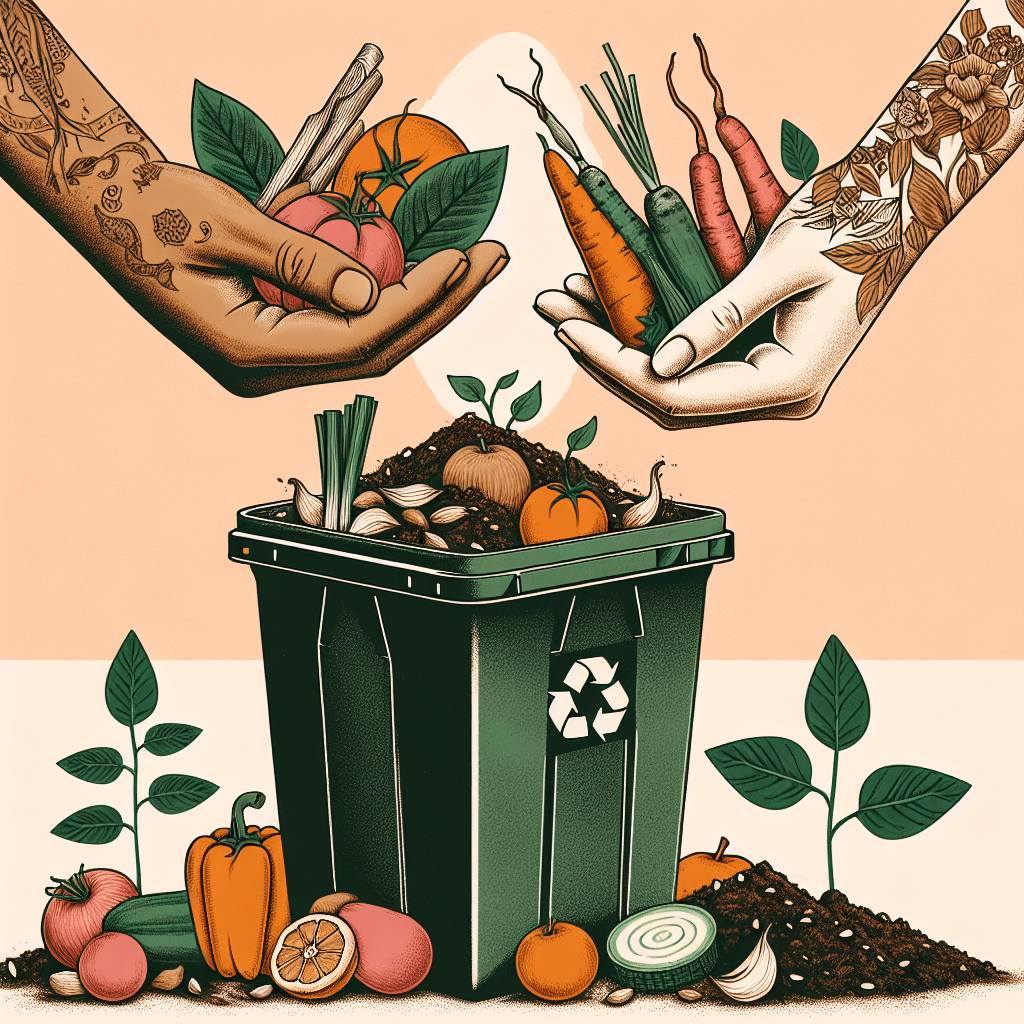Food waste is a pressing issue that affects not only the environment but also our wallets. In the United States alone, it is estimated that about 30-40% of the food supply is wasted, which amounts to about 133 billion pounds and $161 billion worth of food each year. This not only contributes to greenhouse gas emissions but also wastes valuable resources such as water, energy, and land.
Reducing food waste is essential for promoting sustainability and reducing our environmental footprint. By being mindful of our food consumption habits and implementing simple strategies, we can all play a part in addressing this critical issue.
Ways to Reduce Food Waste and Improve Sustainability
1. Plan Your Meals
One of the most effective ways to reduce food waste is by planning your meals ahead of time. Create a grocery list based on the meals you plan to make for the week and stick to it. This will help you avoid buying excess food that may end up going to waste.
2. Store Food Properly
Properly storing food can help extend its shelf life and prevent spoilage. Make sure to store perishable items such as fruits and vegetables in the refrigerator and use airtight containers for leftovers. By keeping your food fresh for longer, you can reduce the chances of it going to waste.
3. Use Leftovers Creatively
Instead of throwing away leftovers, get creative with how you use them. Repurpose ingredients into new dishes, such as using vegetable scraps to make a homemade broth or turning stale bread into croutons. This not only reduces food waste but also adds variety to your meals.
4. Compost Food Scraps
If you have food scraps that are not suitable for consumption, consider composting them instead of throwing them in the trash. Composting is a sustainable way to recycle organic waste and create nutrient-rich soil for plants. It can help reduce the amount of food waste that ends up in landfills.
5. Support Local Food Banks
Instead of letting excess food go to waste, consider donating it to your local food bank or soup kitchen. Many organizations accept perishable items and can distribute them to those in need. By donating your surplus food, you can help reduce food insecurity in your community.
Conclusion
Reducing food waste is a crucial step towards promoting sustainability and minimizing our environmental impact. By being mindful of our food consumption habits, planning meals, storing food properly, using leftovers creatively, composting, and supporting local food banks, we can all contribute to a more sustainable future. Together, we can make a difference in reducing food waste and protecting our planet.
FAQs
Q: Why is reducing food waste important for sustainability?
A: Food waste contributes to greenhouse gas emissions, wastes valuable resources, and harms the environment. By reducing food waste, we can help conserve natural resources, reduce pollution, and promote a more sustainable food system.
Q: How can I tell if food is still safe to eat?
A: Use your senses to determine if food is still safe to eat. Check for signs of spoilage such as mold, strange odors, or changes in texture. When in doubt, it’s better to err on the side of caution and discard the food.
Q: What are some tips for reducing food waste when dining out?
A: When dining out, consider sharing dishes with others to avoid overordering. Take home leftovers for later consumption or ask for smaller portions if needed. Be mindful of portion sizes and only order what you can finish to reduce food waste.
Additional Tip
Get creative in the kitchen by experimenting with new recipes and flavor combinations. This not only makes cooking more fun but also helps you use up ingredients before they go bad. By trying out new dishes, you can reduce food waste and expand your culinary skills.
#Food #Waste #Sustainability #Reduce #Environmental #Footprint
